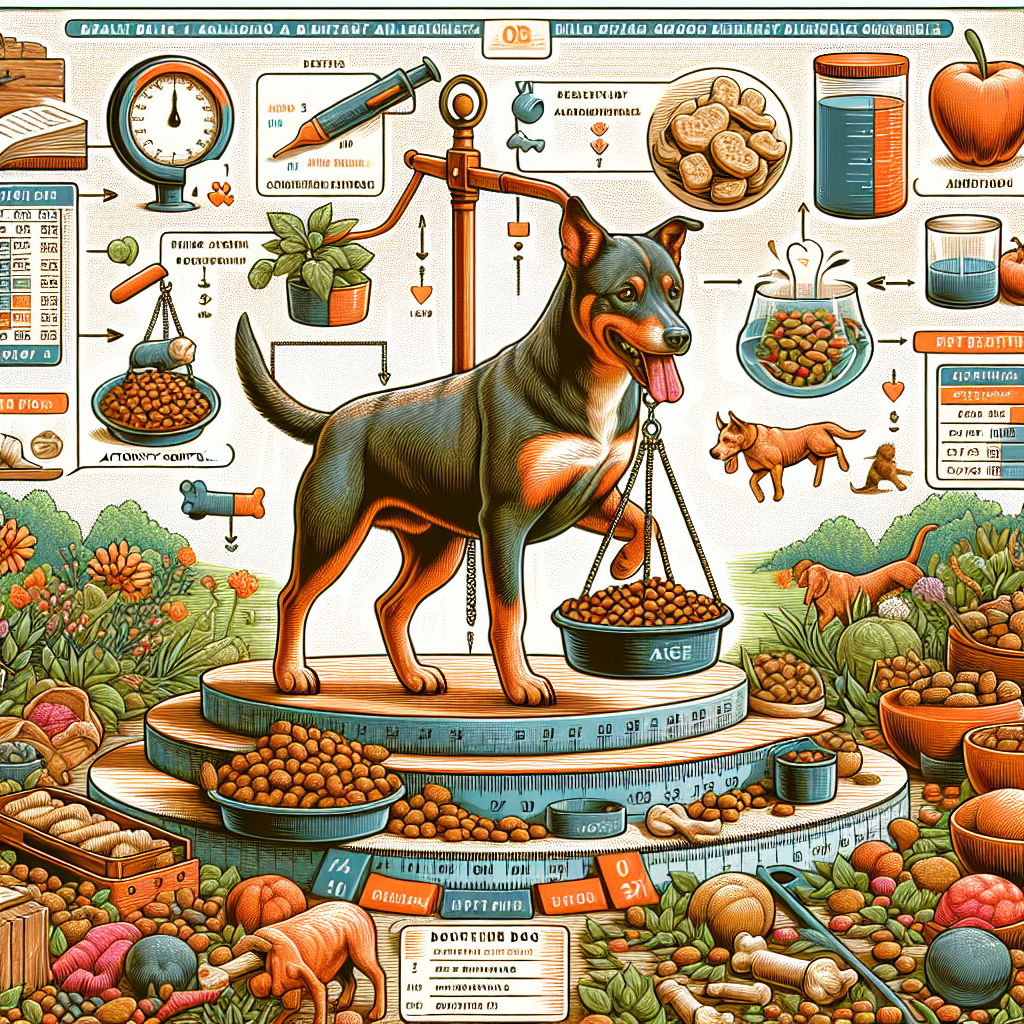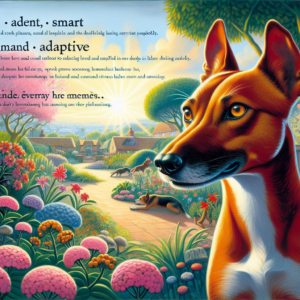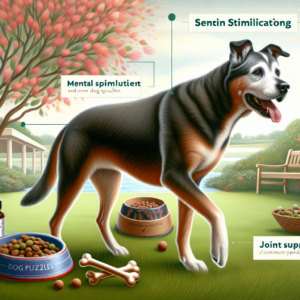Contents
Introduction
Providing a balanced and nutritious diet is essential for maintaining the overall health and well-being of any dog, and the Africanis is no exception. As a breed with strong hunting instincts, high energy levels, and a lean physique, it’s crucial to ensure that your Africanis dog receives the proper nutrition to support its active lifestyle, promote longevity, and prevent common health issues. This article offers an in-depth look at the dietary needs of the Africanis dog, including tips on portion control, choosing quality food, and addressing any special dietary considerations.
Dietary Requirements
The Africanis dog is a naturally lean, muscular breed with significant energy requirements due to its athletic nature. As with any breed, understanding the specific dietary needs of your Africanis is key to keeping them healthy and thriving.
1. Protein Requirements
Protein is the building block of muscle tissue and plays a crucial role in overall growth, maintenance, and repair. For Africanis dogs, who are active and often engage in high-energy activities, a protein-rich diet is essential. Ideally, the protein in their diet should come from high-quality animal-based sources, such as chicken, lamb, beef, or fish.
Optimal Protein Levels: Africanis dogs should consume a diet containing at least 20-30% protein, depending on their age, size, and activity level. Puppies and young adults in their growth phase may require higher levels of protein to support muscle development.
2. Fat Requirements
Fats are another important nutrient that provide energy and support cellular functions, including skin health and coat quality. A healthy level of fat in your dog’s diet helps maintain optimal body condition, especially for a breed like the Africanis that needs extra energy for its active lifestyle.
Optimal Fat Levels: Africanis dogs generally benefit from a diet that includes around 8-15% fat, depending on their energy expenditure. Dogs with higher activity levels, such as those involved in regular exercise or working tasks, may require slightly higher fat content to fuel their energy needs.
3. Carbohydrate Requirements
Carbohydrates, while not as essential as proteins and fats, provide an important energy source for active dogs. They are digested into glucose, which serves as fuel for the body and brain. For Africanis dogs, moderate amounts of digestible carbohydrates—such as sweet potatoes, brown rice, and oatmeal—can be beneficial, particularly for maintaining energy levels.
Optimal Carbohydrate Levels: While the Africanis doesn’t require a carb-heavy diet, they do need a small percentage of carbohydrates to provide sustained energy. A range of 30-50% carbohydrates is typically suitable for maintaining overall health and energy.
4. Vitamins and Minerals
A well-balanced diet also needs to include an array of vitamins and minerals to support your dog’s immune system, bone health, and overall vitality. Essential nutrients like calcium, phosphorus, omega fatty acids, and antioxidants contribute to strong joints, a healthy coat, and good digestion.
Calcium and Phosphorus: Africanis dogs, especially growing puppies and active adults, need calcium and phosphorus in balanced ratios to support bone health. Foods with balanced levels of these minerals will help prevent developmental issues, such as joint problems or skeletal weaknesses.
Omega Fatty Acids: Omega-3 and omega-6 fatty acids are critical for maintaining healthy skin, a shiny coat, and reducing inflammation. These are typically found in fish oil or flaxseed.
5. Age-Appropriate Diets
The dietary needs of your Africanis dog will vary based on their age. Puppies, adults, and seniors all have distinct nutritional needs that should be met with age-specific formulations.
- Puppies: During their early development, Africanis puppies require higher levels of protein and fat to fuel growth and muscle development. Look for formulas labeled specifically for puppies to ensure that they receive the right balance of nutrients for healthy development.
- Adults: Adult Africanis dogs require balanced nutrition that supports their energy levels and maintains lean muscle mass. An adult dog food formula with moderate protein and fat content is suitable for active dogs that engage in regular exercise.
- Seniors: Senior Africanis dogs may experience slower metabolisms, so a senior-specific formula with fewer calories and added joint support ingredients (like glucosamine and chondroitin) is recommended. Adjust portion sizes to avoid weight gain, and ensure they get nutrients that support heart, kidney, and joint health.
Portion Control
Knowing how much to feed your Africanis dog is just as important as knowing what to feed them. Overfeeding can lead to obesity, which increases the risk of developing conditions like joint issues, heart disease, and diabetes, while underfeeding can lead to malnutrition and a weakened immune system.
1. Determining Portion Sizes
The appropriate portion size for your Africanis dog depends on several factors:
- Age: Puppies require more calories and protein to support their growth. Adult dogs generally need fewer calories, while seniors may need even fewer due to decreased energy levels.
- Weight: Overweight dogs need to have their portions adjusted to promote weight loss. Conversely, underweight dogs may need additional food to help them gain weight in a healthy way.
- Activity Level: Active Africanis dogs need more food than sedentary ones. If your dog is very active and exercises regularly, they will need higher calorie intake to maintain energy levels.
You can follow general feeding guidelines based on your dog’s weight, but it’s always recommended to consult with a veterinarian for personalized portion control.
2. The Risks of Overfeeding
Overfeeding can lead to obesity, which increases the risk of a variety of health problems such as diabetes, heart disease, and joint strain. Common signs of overfeeding include:
- A noticeable weight gain
- Difficulty in moving or exercising
- A less active or lethargic behavior
It’s crucial to monitor your Africanis’s body condition and adjust their portions accordingly.
3. Signs of Weight Gain
Regularly assess your dog’s body condition using the rib test: you should be able to feel your dog’s ribs easily without excessive fat covering. If you can’t feel them or if you notice a visible weight gain, it’s time to reduce portion sizes or adjust their diet. Keeping track of your dog’s weight and appearance will help you avoid the risks associated with overfeeding.
Choosing High-Quality Dog Food
Not all dog foods are created equal, so it’s important to choose a high-quality, nutritious diet for your Africanis dog. Selecting the right food is critical for providing the essential nutrients your dog needs for overall health and well-being.
1. How to Read Dog Food Labels
When choosing dog food, always read the label carefully to ensure it meets the nutritional standards for your dog. Look for:
- Named animal protein as the first ingredient: This indicates a high-quality protein source.
- Limited fillers: Avoid dog foods with excessive fillers like corn, soy, and wheat, as they offer little nutritional value.
- Balanced nutrient profile: Look for a good balance of protein, fat, and carbohydrates. This balance is crucial for an active breed like the Africanis.
2. Reputable Brands
Select food from reputable brands known for high-quality ingredients and good manufacturing practices. Some well-known brands that provide high-quality dog food include Hill’s Science Diet, Orijen, and Acana.
3. Consult with a Veterinarian or Nutritionist
Working with a veterinarian or pet nutritionist can help ensure your Africanis receives a personalized, balanced diet. A nutrition expert can suggest the best food based on your dog’s age, size, activity level, and any health concerns.
Special Dietary Considerations
Certain Africanis dogs may have specific dietary restrictions or health concerns that require adjustments to their nutrition.
1. Allergies or Sensitivities
Some Africanis dogs may experience food allergies or sensitivities, which can cause symptoms like itching, digestive upset, or skin issues. If your dog is prone to allergies, look for hypoallergenic formulas made with limited ingredients or novel protein sources, such as duck or venison.
2. Managing Dietary Restrictions
If your dog has specific health issues, such as kidney disease, diabetes, or gastrointestinal problems, their diet may need to be adjusted. Special therapeutic diets are available for dogs with these conditions, and they often include controlled protein, fat, and fiber levels. Consult your veterinarian for guidance in managing these dietary needs.
3. Transitioning to a New Diet
When switching your Africanis dog to a new diet, it’s important to do so gradually to prevent digestive upset. Start by mixing small amounts of the new food with their current food, slowly increasing the ratio of new food over a period of 7-10 days. This gradual transition helps your dog adjust and minimizes the risk of gastrointestinal distress.
Conclusion
Feeding your Africanis dog a balanced, nutritious diet is essential for maintaining their health and vitality. By understanding their specific dietary needs—such as appropriate protein, fat, and carbohydrate levels— and paying attention to portion control, you can ensure that your dog stays at a healthy weight and energy level. Choosing high-quality dog food, being mindful of any special dietary considerations, and consulting with a veterinarian can help you provide the best nutrition for your Africanis dog. With proper care and attention to their dietary requirements, your Africanis dog will lead a long, healthy, and happy life.


